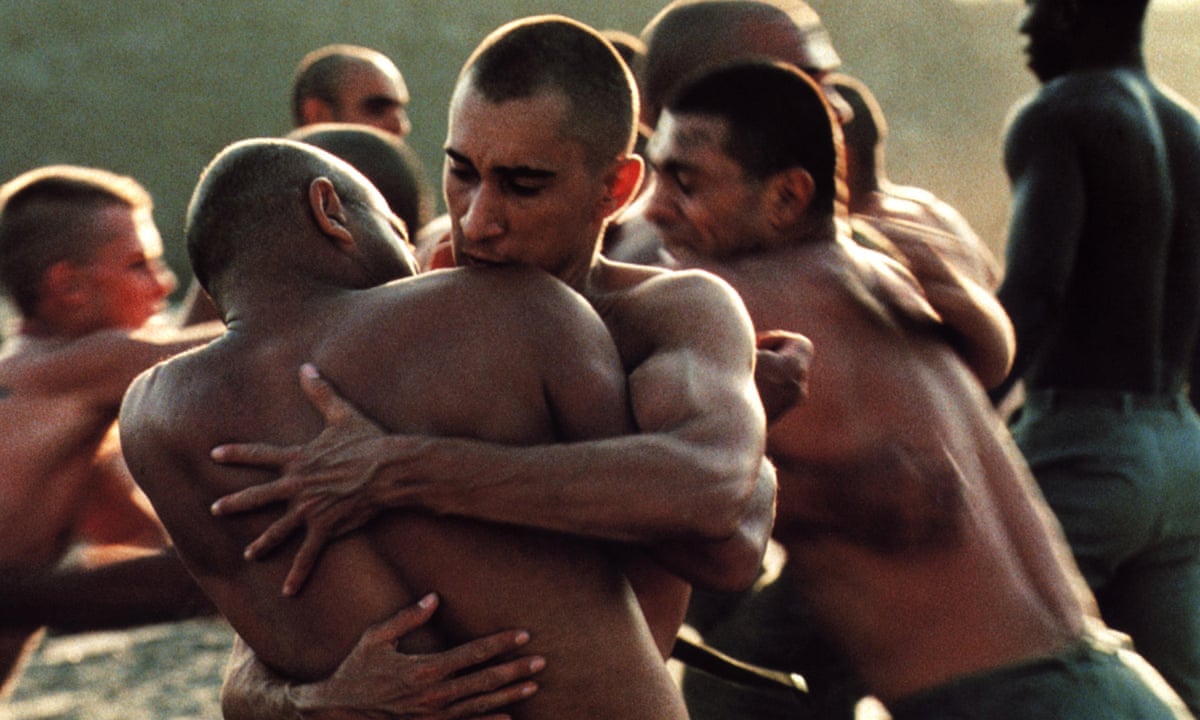beau travail (1999) & friendly fire by male ego
Reckoning with memory is always a framing device in film that I absolutely adore, and it wasn’t until it was brought up in the post-screening discussion that I even considered the splendid ‘Beau Travil’ to be in this vein of storytelling. Denis’ decision to do this is in confluence with the book that shares much of its narrative DNA, ‘Billy Budd, the Sailor’ by Herman Melville. Like many novels of the 19th century, it’s written in a floating third person perspective which flows between the main trio of characters present, unlike Deni’s film which is bookended and interspersed with narrative and voice-over from our guide through the story, Sgt. Galoupe.
So what does transfixing this narrative device do for the film? We’re shown shots of Galoupe walking around Paris, writing in his journal, and generally being morose while climbing trees and staring out a stationary train’s window. The most interesting shot for me in this collection is of the journal, as it represents some form of coping, almost as if the film itself could have been made by Galoupe as a therapeutic exercise. It signifies a desire for some sense of catharsis, unfortunately for Galoupe & us, we know how the film ends. And this is where opinions might differ. Why did he do it? I reckon that his reckoning leads him to a sort of troubled peace, given by his demeanour throughout the film. He’s certainly tainted by the jealousy present inside of him and of the actions taken to maintain the affection shown by his commanding general father figure, but I believe he found the melancholic solace that given the circumstances, he would act the same way again. Heartbreaking.
Another shift Denis employs in the film is to set it in the french speaking nation of Djibouti, and centring the conflict between armoured guards of the French Legion. Not only is this a place close to her heart as a woman who moved around much in her childhood, not feeling belonged to any specific group, much like the legionnaires themselves, but also torn between ideologies and cultures. Djibouti was under French colonial rule for almost a century but if you scour over google maps right now as I did, you’d find a confluence of colonial french and Arabic popping up. Similarly, the troupe that the film centers around is comprised of openly Muslim and supposedly Christian members. This bounces around the periphery as the Muslim members of the corps refrain from eating in the heat of the African sun while others mock and tease in French. It’s worth noting that this goes on under the supervision of Galoupe and nothing is made of it. This all comes to a head in the climax of the film where Gilles Setain (never openly stated but presumed to be an ethnic European Frenchman & Christian) allows one of his cohorts to leave post to pray over Ramadan. It’s over the punishment of this action that the events of the final act kick-off. This firmly places Galoupe in the position of a militaristic, colonial power that doesn’t support religious equity even if that religion belongs to the state he’s supposedly aiding. Ironic, non?

Comments
Post a Comment